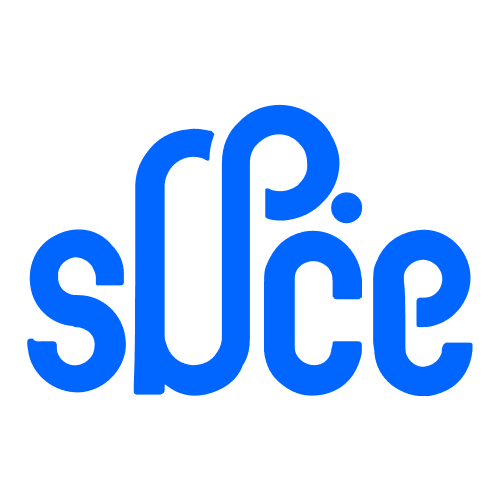Godot输入系统深度解析:First Game项目键盘控制最佳实践
在游戏开发中,输入系统是连接玩家与虚拟世界的桥梁。一个优秀的输入系统不仅需要响应迅速、逻辑清晰,更要具备良好的扩展性和维护性。今天我们将通过分析GitHub热门项目`first-game-in-godot`,深入探讨Godot引擎的输入系统设计与实现。## 项目概览与输入配置分析### 输入映射配置解析在`project.godot`文件中,我们可以看到完整的输入配置:```ini...
·
Godot输入系统深度解析:First Game项目键盘控制最佳实践
前言:为什么输入系统如此重要?
在游戏开发中,输入系统是连接玩家与虚拟世界的桥梁。一个优秀的输入系统不仅需要响应迅速、逻辑清晰,更要具备良好的扩展性和维护性。今天我们将通过分析GitHub热门项目first-game-in-godot,深入探讨Godot引擎的输入系统设计与实现。
项目概览与输入配置分析
输入映射配置解析
在project.godot文件中,我们可以看到完整的输入配置:
[input]
jump={
"deadzone": 0.5,
"events": [Object(InputEventKey,"resource_local_to_scene":false,"resource_name":"","device":-1,"window_id":0,"alt_pressed":false,"shift_pressed":false,"ctrl_pressed":false,"meta_pressed":false,"pressed":false,"keycode":0,"physical_keycode":32,"key_label":0,"unicode":32,"echo":false,"script":null)
]
}
move_left={
"deadzone": 0.5,
"events": [Object(InputEventKey,"resource_local_to_scene":false,"resource_name":"","device":-1,"window_id":0,"alt_pressed":false,"shift_pressed":false,"ctrl_pressed":false,"meta_pressed":false,"pressed":false,"keycode":0,"physical_keycode":4194319,"key_label":0,"unicode":0,"echo":false,"script":null)
, Object(InputEventKey,"resource_local_to_scene":false,"resource_name":"","device":-1,"window_id":0,"alt_pressed":false,"shift_pressed":false,"ctrl_pressed":false,"meta_pressed":false,"pressed":false,"keycode":0,"physical_keycode":65,"key_label":0,"unicode":97,"echo":false,"script":null)
]
}
move_right={
"deadzone": 0.5,
"events": [Object(InputEventKey,"resource_local_to_scene":false,"resource_name":"","device":-1,"window_id":0,"alt_pressed":false,"shift_pressed":false,"ctrl_pressed":false,"meta_pressed":false,"pressed":false,"keycode":0,"physical_keycode":4194321,"key_label":0,"unicode":0,"echo":false,"script":null)
, Object(InputEventKey,"resource_local_to_scene":false,"resource_name":"","device":-1,"window_id":0,"alt_pressed":false,"shift_pressed":false,"ctrl_pressed":false,"meta_pressed":false,"pressed":false,"keycode":0,"physical_keycode":68,"key_label":0,"unicode":100,"echo":false,"script":null)
]
}
输入映射详解
| 动作名称 | 物理键码 | 对应按键 | 死区设置 | 多按键支持 |
|---|---|---|---|---|
| jump | 32 | 空格键 | 0.5 | 单按键 |
| move_left | 4194319, 65 | 左箭头, A键 | 0.5 | 双按键 |
| move_right | 4194321, 68 | 右箭头, D键 | 0.5 | 双按键 |
核心输入处理代码解析
玩家控制器输入处理
extends CharacterBody2D
const SPEED = 130.0
const JUMP_VELOCITY = -300.0
var gravity = ProjectSettings.get_setting("physics/2d/default_gravity")
func _physics_process(delta):
# 重力处理
if not is_on_floor():
velocity.y += gravity * delta
# 跳跃输入检测
if Input.is_action_just_pressed("jump") and is_on_floor():
velocity.y = JUMP_VELOCITY
# 水平移动输入处理
var direction = Input.get_axis("move_left", "move_right")
# 精灵朝向处理
if direction > 0:
animated_sprite.flip_h = false
elif direction < 0:
animated_sprite.flip_h = true
# 动画状态机
if is_on_floor():
if direction == 0:
animated_sprite.play("idle")
else:
animated_sprite.play("run")
else:
animated_sprite.play("jump")
# 速度应用
if direction:
velocity.x = direction * SPEED
else:
velocity.x = move_toward(velocity.x, 0, SPEED)
move_and_slide()
Godot输入系统架构深度解析
输入处理流程
输入检测方法对比
| 方法名称 | 触发时机 | 适用场景 | 返回值类型 |
|---|---|---|---|
is_action_pressed() |
按键按住期间 | 持续移动 | boolean |
is_action_just_pressed() |
按键按下瞬间 | 跳跃/攻击 | boolean |
is_action_just_released() |
按键释放瞬间 | 特殊技能 | boolean |
get_action_strength() |
任意时刻 | 模拟输入 | float (0.0-1.0) |
get_axis() |
任意时刻 | 方向控制 | float (-1.0 to 1.0) |
最佳实践与优化策略
1. 输入死区(Deadzone)配置
# 最佳死区配置建议
const MOVE_DEADZONE = 0.2
const JUMP_DEADZONE = 0.1
# 自定义死区处理
func get_custom_axis(negative_action, positive_action, deadzone = 0.2):
var negative = Input.get_action_strength(negative_action)
var positive = Input.get_action_strength(positive_action)
var axis = positive - negative
return axis if abs(axis) > deadzone else 0.0
2. 多平台输入兼容性
# 多平台输入处理模板
func handle_input():
# 键盘输入
var keyboard_direction = Input.get_axis("move_left", "move_right")
# 手柄输入
var gamepad_direction = Input.get_axis("gamepad_left", "gamepad_right")
# 触摸输入(移动端)
var touch_direction = get_touch_input_direction()
# 最终方向(优先级处理)
var final_direction = 0.0
if abs(gamepad_direction) > 0.1:
final_direction = gamepad_direction
elif abs(keyboard_direction) > 0:
final_direction = keyboard_direction
else:
final_direction = touch_direction
return final_direction
3. 输入缓冲系统实现
# 输入缓冲器类
class InputBuffer:
var buffer_time: float = 0.2
var buffered_actions: Dictionary = {}
func buffer_action(action: String):
buffered_actions[action] = buffer_time
func update(delta: float):
for action in buffered_actions.keys():
buffered_actions[action] -= delta
if buffered_actions[action] <= 0:
buffered_actions.erase(action)
func is_action_buffered(action: String) -> bool:
return buffered_actions.has(action)
# 在玩家脚本中使用
var input_buffer = InputBuffer.new()
func _process(delta):
input_buffer.update(delta)
if Input.is_action_just_pressed("jump"):
input_buffer.buffer_action("jump")
if input_buffer.is_action_buffered("jump") and is_on_floor():
perform_jump()
input_buffer.buffered_actions.erase("jump")
高级输入技巧
1. 组合键输入处理
# 组合键检测
func is_combo_pressed():
return (Input.is_action_pressed("modifier") and
Input.is_action_just_pressed("action"))
# 连续按键检测
var combo_timer = 0.0
const COMBO_WINDOW = 0.3
func _process(delta):
if Input.is_action_just_pressed("attack"):
if combo_timer > 0:
# 连击成功
perform_combo_attack()
combo_timer = 0
else:
# 第一次攻击
perform_normal_attack()
combo_timer = COMBO_WINDOW
elif combo_timer > 0:
combo_timer -= delta
2. 输入重映射系统
# 输入重映射管理器
class InputRemapper:
var custom_mappings: Dictionary = {}
func remap_action(action: String, new_event: InputEvent):
custom_mappings[action] = new_event
InputMap.action_erase_events(action)
InputMap.action_add_event(action, new_event)
func save_mappings():
# 保存到配置文件
pass
func load_mappings():
# 从配置文件加载
pass
# 使用示例
var remapper = InputRemapper.new()
func remap_jump_to_enter():
var enter_event = InputEventKey.new()
enter_event.keycode = KEY_ENTER
remapper.remap_action("jump", enter_event)
性能优化与调试技巧
输入性能监控
# 输入性能分析器
var input_processing_time = 0.0
var frame_count = 0
func _process(delta):
var start_time = Time.get_ticks_usec()
# 输入处理逻辑
process_player_input()
var end_time = Time.get_ticks_usec()
input_processing_time += (end_time - start_time) / 1000.0
frame_count += 1
if frame_count >= 60:
var avg_time = input_processing_time / frame_count
print("平均输入处理时间: %.2f ms" % avg_time)
input_processing_time = 0.0
frame_count = 0
输入调试可视化
# 输入状态显示器
func _draw():
if Engine.is_editor_hint():
return
# 绘制输入状态
draw_string(get_font("font"), Vector2(10, 30),
"Jump: " + str(Input.is_action_pressed("jump")))
draw_string(get_font("font"), Vector2(10, 50),
"Move: " + str(Input.get_axis("move_left", "move_right")))
常见问题与解决方案
问题排查表
| 问题现象 | 可能原因 | 解决方案 |
|---|---|---|
| 输入无响应 | 输入映射未配置 | 检查project.godot输入设置 |
| 输入延迟 | 处理逻辑复杂 | 优化输入处理代码结构 |
| 按键冲突 | 多个动作共用按键 | 重新设计输入映射 |
| 移动端不兼容 | 触摸输入未处理 | 添加触摸输入支持 |
输入系统测试用例
# 输入系统单元测试
func test_input_system():
# 测试按键映射
assert(InputMap.has_action("jump"), "跳跃动作未定义")
assert(InputMap.has_action("move_left"), "左移动作未定义")
assert(InputMap.has_action("move_right"), "右移动作未定义")
# 测试输入处理
var test_player = Player.new()
test_player.process_input(Vector2.RIGHT, true)
assert(test_player.velocity.x > 0, "右移输入处理失败")
print("所有输入测试通过!")
总结与最佳实践建议
通过分析first-game-in-godot项目的输入系统实现,我们总结了以下Godot输入系统最佳实践:
- 统一的输入映射管理:在
project.godot中集中配置所有输入动作 - 合理的死区设置:根据游戏类型设置适当的死区值(0.1-0.3)
- 多平台输入兼容:同时支持键盘、手柄和触摸输入
- 输入缓冲优化:使用输入缓冲器提升操作体验
- 性能监控:实时监控输入处理性能,确保流畅体验
Godot的输入系统设计既灵活又强大,通过合理的架构设计和优化策略,可以打造出响应迅速、体验优秀的游戏控制系统。记住,好的输入系统是游戏成功的一半!
进一步学习建议:
- 深入研究Godot的InputEvent系统
- 探索高级输入处理技巧如手势识别
- 学习输入系统的网络同步实现
- 实践输入重映射和配置保存功能
掌握这些输入系统知识,你将能够为玩家提供更加流畅和响应迅速的游戏体验。
更多推荐
 已为社区贡献1条内容
已为社区贡献1条内容

 项目地址: https://gitcode.com/GitHub_Trending/fi/first-game-in-godot
项目地址: https://gitcode.com/GitHub_Trending/fi/first-game-in-godot 





所有评论(0)